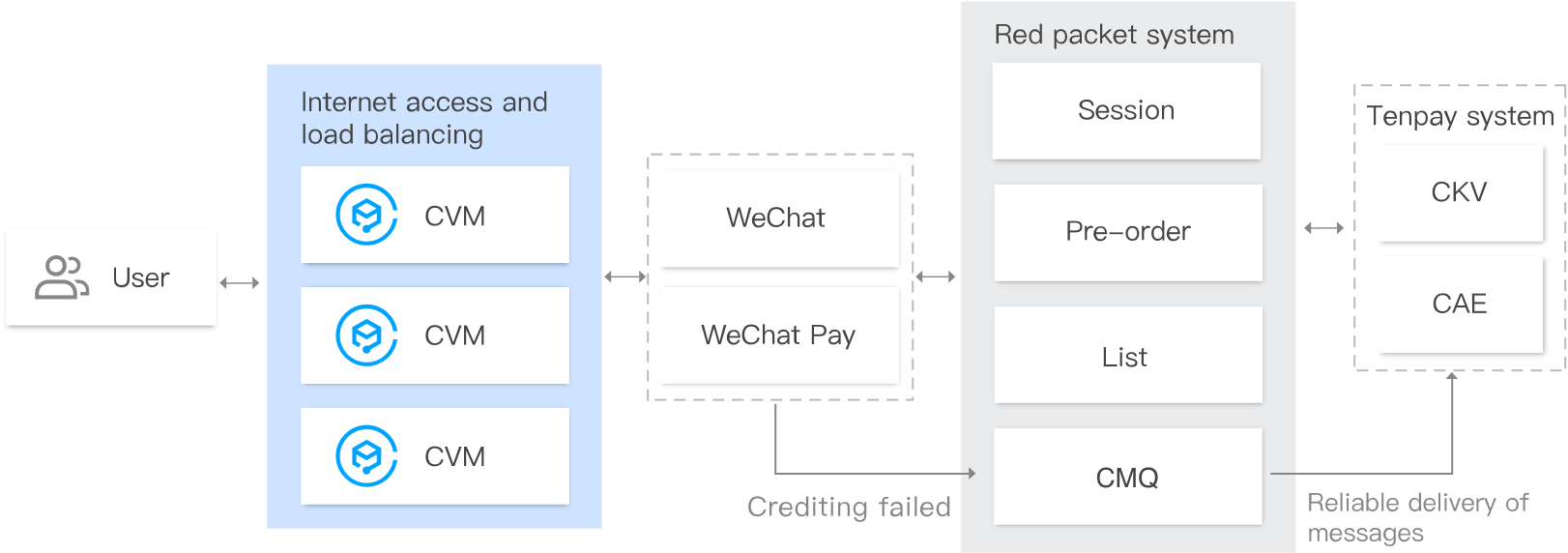
Overview
Tencent Cloud Cloud Message Queue (CMQ) is a distributed message queue service featuring a reliable message-based async communication mechanism that enables message receiving/sending among different applications deployed in a distributed manner (or different components of the same application) and stores the messages in reliable and valid CMQ queues to prevent message loss. It supports multi-process simultaneous read-write so that message sending and receiving do not interfere with each other, eliminating the need for the applications or components to run continuously.
Benefits
High Performance
High Availability
High Scalability
Security and Reliability
Easy OPS-free Usage
Features
- Async Communication Protocol
- Improved Reliability
- Process Decoupling
- Message Routing
- Multi-terminal Interconnection
- Diversity
Scenarios

The benefits of CMQ are well-reflected in the distributed transactions of WeChat's red packet system. The WeChat architecture team has integrated CMQ into the red packet system to reduce its distributed transactions overhead. The CMQ red packet queue ensures the reliable delivery and storage of red packet messages. If the funds fail to be credited, the account system will continue pulling from the CMQ to retry the update operation, ensuring that the crediting message will never get lost and avoiding drawbacks such as rollback upon crediting failure and frequent database polling. Learn more.
- Permanently Available Messages (WeChat)
- High Scalability
- Intra-city Disaster Recovery
The benefits of CMQ are well-reflected in the distributed transactions of WeChat's red packet system. The WeChat architecture team has integrated CMQ into the red packet system to reduce its distributed transactions overhead. The CMQ red packet queue ensures the reliable delivery and storage of red packet messages. If the funds fail to be credited, the account system will continue pulling from the CMQ to retry the update operation, ensuring that the crediting message will never get lost and avoiding drawbacks such as rollback upon crediting failure and frequent database polling. Learn more.

